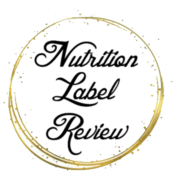On April 13th, 2023, the FTC released warning letters to almost 700 companies stating that they can face penalties if they can’t substantiate health claims made. Although the list didn’t directly indicate wrongdoings, enforcement may be to come.
See the Companies Warned HERE
So, briefly lets breakdown the FTC Truth in Advertising Laws and the FDA coordination, which placed many of the warned companies in the crosshairs.
The FTC Truth in Advertising Law can be broken down into two main points.
- Advertising must be truthful and not misleading, and
- Before disseminating on Ad, advertisers must have adequate substantiation for all objective product claims conveyed, expressed, or implicated to consumers.
Advertising nowadays means far more than it did years ago.
- TV Ads
- Radio
- Internet Ads
- Packaging/Labeling
- Promotional Material (brochures/booklets)
- Internet/digital content
- Social Media content (including hashtags)
- Influencer/distributor marketing
- Tradeshows
- Conferences
- Seminars
- And more…
It is very important to ensure that anyone participating in marketing is familiar with the basics of FTC advertising principles. All parties who directly participate or have the authority to control marketing practices have an obligation to make sure products are marketed in a way that is truthful and not misleading. It has not been an uncommon theme to even see ad agencies, retailers, etc. held accountable.
So how does the FTC and FDA work in coordination?
The FTC and the Food and Drug Administration (FDA) share jurisdiction over the marketing of dietary supplements, foods, drugs, devices, and other health-related products. The agencies coordinate their enforcement and regulatory efforts pursuant to a Memorandum of Understanding – often called the “FDA-FTC Liaison Agreement” – that governs the basic division of responsibilities between them.
The FDA primary responsibility is labeling at the Point of Sale (POS) which can include the packaging, promotional material, and product inserts. The FTCs primary responsibility is the claims in all forms of advertising. It is important to note that the liaison agreement between the FTC and FDA doesn’t limit the FTC jurisdiction against deceptive labeling claims.
The biggest differences include:
- The FTC doesn’t draw hardlines and create categories between products and claims. For example, provisions in the Dietary Supplement Health and Education Act of 1994 (DSHEA) regarding “structure/function” claims in labeling don’t govern the FTC’s assessment of those claims in advertising.
- The FTC also doesn’t pre-approve “health” claims, as that term is defined by FDA labeling laws.
- Lastly, the FTC doesn’t require notification for “structure/function” claims. Under FDA labeling law, dietary supplement marketers must notify the FDA of structure/function claims and other statements of nutritional support that appear in labeling, but don’t need to seek FDA pre-approval. The FTC doesn’t have a parallel notification requirement for such claims in advertising. Despite this difference, both the FDA and the FTC require that marketers have prior substantiation that the claims are truthful and not misleading.
A common problem in the substantiation of advertising claims is that an advertiser has valid studies, but the studies don’t support the claim made in its ad. Advertisers should make sure that the research on which they rely isn’t just internally valid, but also relevant to their specific product and to the specific advertised benefit. It’s also important that the claims accurately reflect what the research shows. Claims that don’t match the research results, no matter how sound that research is, are likely to be deceptive. Thus, advertisers should be careful not to exaggerate the extent, nature, or permanence of the effects achieved in a study. Studies also can’t be considered in isolation. The surrounding context of the scientific evidence is just as important as the internal validity of individual studies. Advertisers should consider all relevant well-conducted research relating to the claimed benefit and shouldn’t focus only on research that supports an effect, while discounting research that doesn’t.
If your product, marketing team, or advertising needs compliance reviews and substantiation support our experts are ready to assist. Contact us today!

